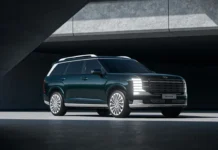
The Volkswagen ID.Life aims for a 250-mile range and sub-$25,000 price tag.
To be clear, it’s not apparent at this point where outside Europe a small vehicle like this Volkswagen ID.Life concept would go on sale, if Volkswagen put it into production. Nonetheless, the German automaker revealed this small, boxy urban car at IAA Mobility 2021 in Munich, giving us a glimpse at where the brand’s thinking in terms of a no-fuss electric runabout.
Foremost, the Volkswagen ID.Life focuses on a low barrier to entry. When the company aims to launch a small EV crossover based on this concept in 2025, they say it will cost around €20,000 — or nearly half the price of the new ID.4. It will pack a 57-kWh battery pack (about the same size as a Nissan Leaf Plus), but manage up to 250 miles (about 400 kilometers) on a charge. Using a single 231 horsepower electric motor on the front axle, Volkswagen estimates will do 0-60 in 6.9 seconds. So it’s a cheap, cute and reasonably quick way of getting around town, at least on paper.
What’s more, the Volkswagen ID.Life makes extensive use of recycled materials in its construction. The lightweight air chamber textile roof is made from recycled plastic bottles. The tires are made from natural rubber, and VW used wood chips as a natural coloring agent in the paint.

The interior is nearly as simple as you can imagine
Instead of housing a complex infotainment system, a smartphone functions as the central “display”, much like the Citroen Ami. You do get a touchscreen at the center of the open-topped steering yoke, and that houses the crucial driving controls. That’s a feature I’d take with a grain of salt in terms of actually making it to production, mainly due to airbag regulations — but we’ll see. The car even has an extendable projection screen to turn the car into a mini-cinema or game lounge, when conditions permit.
Like Volkswagen’s other ID.-branded models, the ID.Life uses the MEB platform. Again, we’ll have to wait until mid-decade to see what production model follows up the concept. Nevertheless, as VW moves toward a 70-percent EV sales share (in Europe) by 2030, cars like this play a role in getting young buyers onto the EV bandwagon.





























